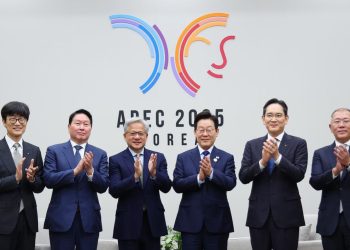On Thursday, South Korea’s finance minister stated that the country will implement stricter measures to prevent the overseas leakage of business secrets. This decision comes in response to increasing competition for advanced technologies and increased incidents involving the unauthorized dissemination of sensitive information.
The government announced new initiatives to strengthen protections against technology leaks from its patent office. Officials are concerned that intellectual property theft (IP) could adversely impact domestic companies, especially as stolen technology risks being transferred abroad.
Minister Choi Sang-mok emphasized preventing illegal leaks of advanced technologies to enhance the global competitiveness of South Korean companies and reinforce the nation’s leadership in technology. The government plans to implement a “big data” system at the patent office to monitor and prevent such leaks, alongside introducing stricter regulations that will impose harsher penalties on offenders, although specifics on the penalties have not yet been disclosed.
In the past five years, there have been 97 reported attempts to leak business secrets abroad, with 40 incidents specifically targeting the semiconductor sector and an additional 18 aimed at display technology. The National Intelligence Service estimates that these leaks could have resulted in a staggering loss of approximately 23 trillion won ($16.85 billion) to the country. The majority of these breaches, over 60%, were attributed to “insider actions,” often disguised as personnel changes or corporate mergers.
Concerns extend beyond patent inquiries, as suspicions of technology leakage have arisen during mergers and acquisitions in sectors such as OLED displays and automotive technologies. Companies have withdrawn from South Korea after transferring domestic technology to foreign parent firms. Recently, two Samsung employees were arrested on allegations of stealing over $3.2 billion in intellectual property to establish a rival chip company in China.
Despite the rising threat of technology leaks, South Korean companies’ response has been tepid. Approximately one-third of firms refrain from addressing IP theft due to the associated costs and time commitments.
Alarmingly, 55% of universities and public institutions lack dedicated personnel for research security, and litigation rates for trade secret infringements remain low, with success rates around half of other civil cases.
The Ministry of Economics and Finance noted that even when plaintiffs win lawsuits, the awarded damages are often minimal due to challenges in securing evidence and inadequate standards for damage calculations.
In recent years, South Korea has identified 12 industries as “national strategic technologies,” including semiconductors, rechargeable batteries, aerospace, and artificial intelligence, to bolster its response to intensifying global competition and fragmented supply chains. The government aims to provide targeted financial support and protective measures for these key sectors to safeguard their contributions to the national economy.
Additionally, the government will support companies, universities, and public entities by offering consulting services, expanding mediation options, and developing a system of electronic fingerprints for tracking stolen information. South Korea is looking to emulate the protective measures implemented by countries like the United States, China, Japan, and the EU to minimize IP theft and bolster national security.







